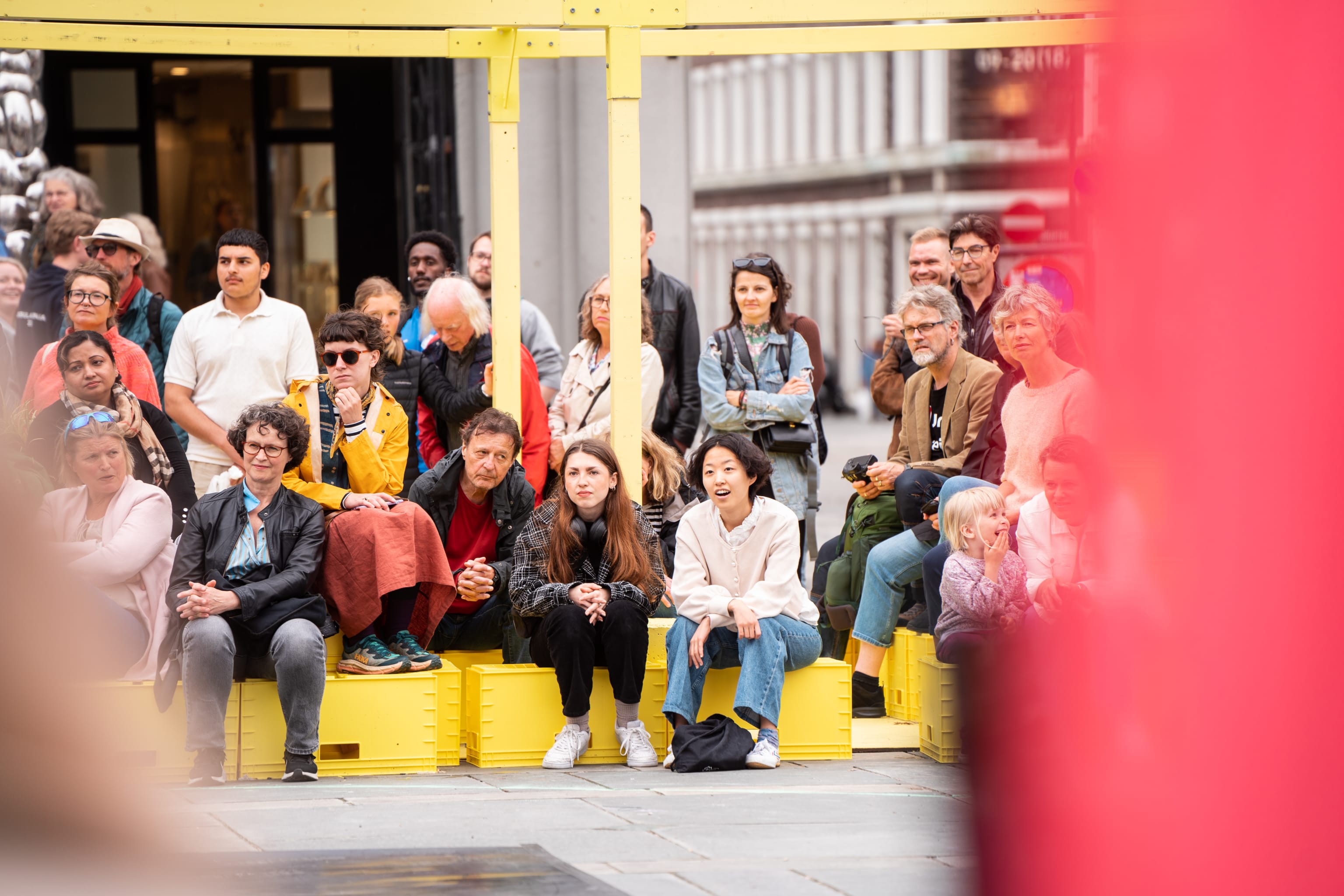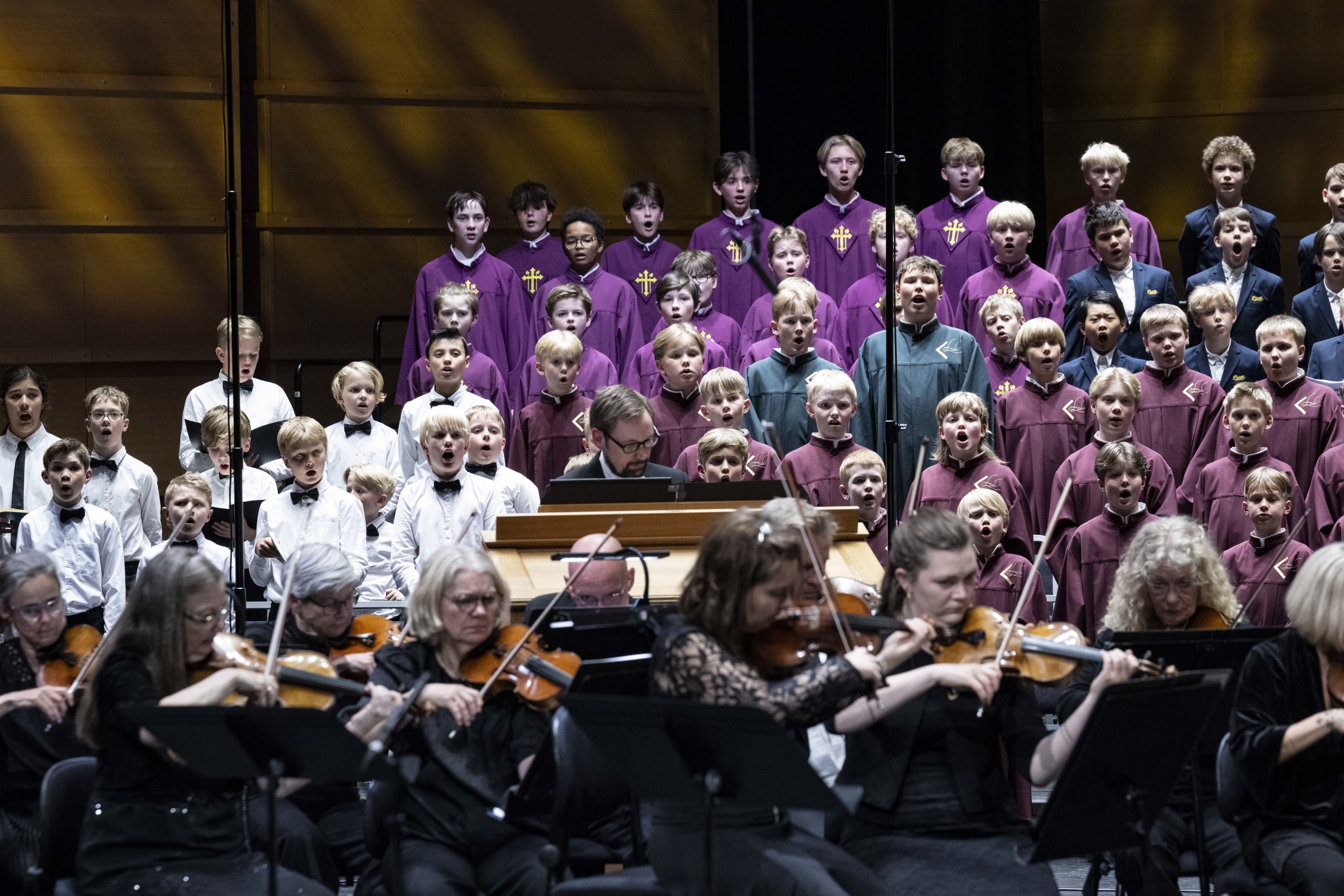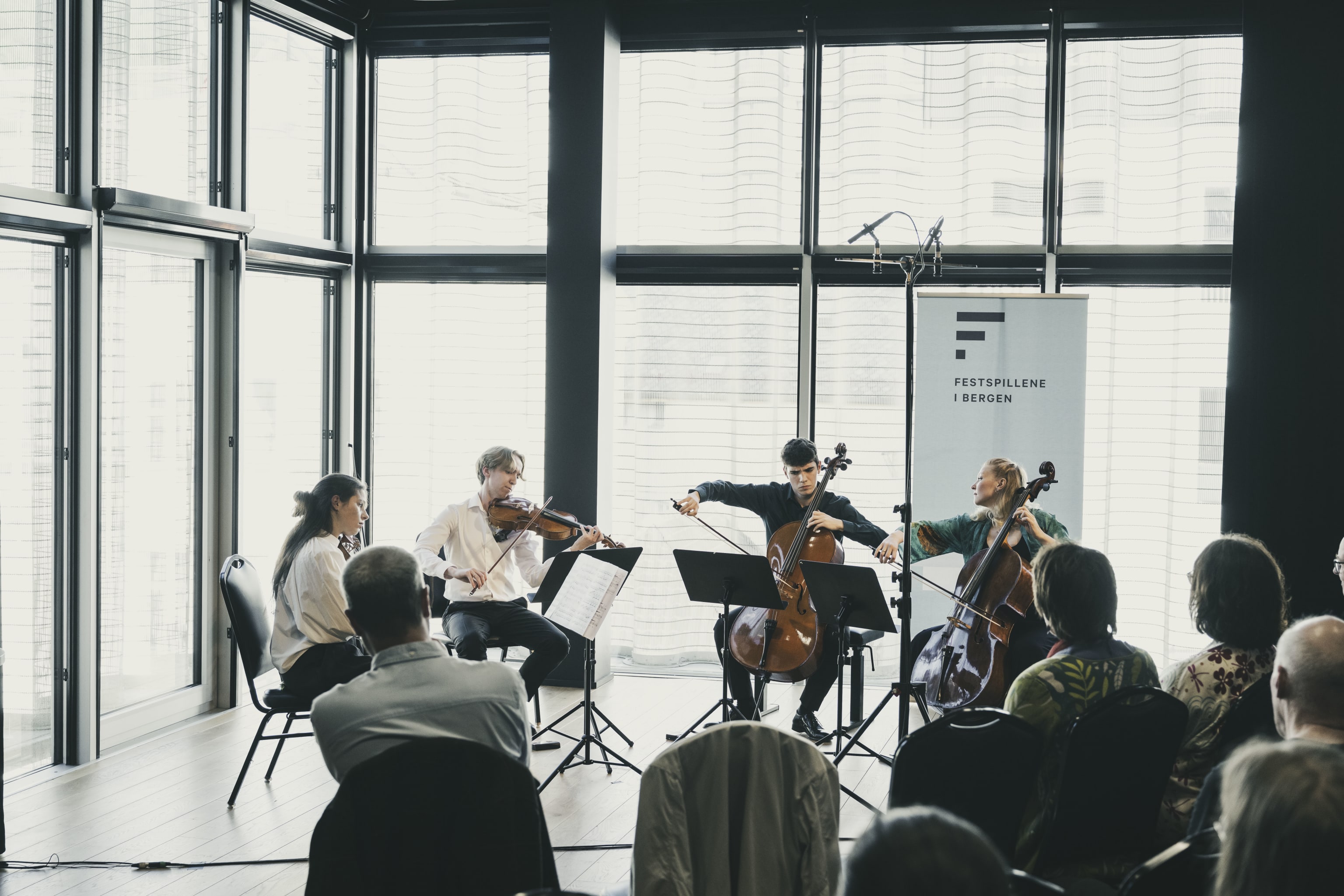
Making your voice heard
- Home
- Festival
- 2020-and-before
- Articles
- Making Your Voice Heard
May 12, 2014
The preparations for the Festival opening performance Stemmer (”Voices & Votes”) have begun in different corners of the world.
Expectations are high for this great celebration of freedom. In London, composer Orlando Gough has just sent the score to the Bergen Philharmonic Orchestra. Director Olivia Fuchs is creating her rendition of the West Bank Barrier. Tamil singer Manickam Yogaswaran is working on his role as Gandhi, and in South Africa Nelson Mandela is being interpreted. The choir Sangkoret Lyderhorn is rehearsing lines from the French revolution, and at the Bergen Private High School, music students are studying hindi. Author Astrid Luisa Niebuhr (19) has just finished writing a new constitution, and at the theatre Den Nationale Scene the actors are working on Norway’s first prime minister Christian Michelsen and some dance moves.
The world premiere of Stemmer, which translates as both “Voices” and “Votes”, is just weeks away. The starting-point for this spectacular performance, produced by the Bergen National Opera, is the bicentennial of the Norwegian Constitution, but it also reflects battles for freedom in India, South Africa and Palestine.
– I immediately said yes when I was asked if I wanted to make a piece celebrating the bicentennial of the Norwegian Constitution. And then I thought: heck, from an English person’s point of view that is a seriously niche subject! But gradually I realised that it could be a piece, more generally, about how we’d like society to work, and about how it often doesn’t, a piece, in other words, about human rights, and idealism, and the abuses of power, and protest, and revolution. Potentially very interesting, says composer Orlando Gough.
The text consists of excerpts from constitutions, declarations of independence, protest songs, folk songs and poetry of resistance from a number of countries, and onstage we meet several great freedom fighters.
Orlando Gough is well known for his imaginative performances that often put professionals and amateurs, local artists and international choirs and soloists together on stage. His music is difficult to pigeonhole, and Stemmer is written for both a symphony orchestra and a band led by Ole Farstad. Fiddler Nils Økland also plays a key role.
Perhaps the most important role is that of the chorus, consisting of more than 200 people. They are always present, whether they are singing a protest song, whispering the names of the Eidsvoll signatories to the Constitution, ululating, shouting slogans or responding to the soloists.
– The piece is written for a large amateur chorus – a lovely mixture of adults and teenagers, a children’s chorus, an excitingly diverse group of soloists, orchestra and small band. The piece is not called Stemmerfor nothing, says Orlando Gough.









